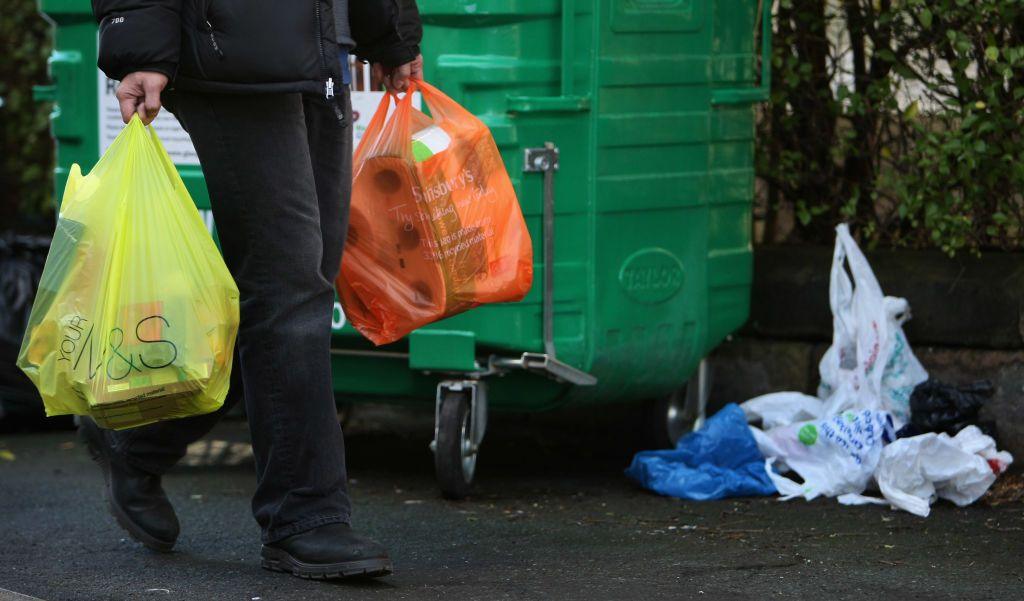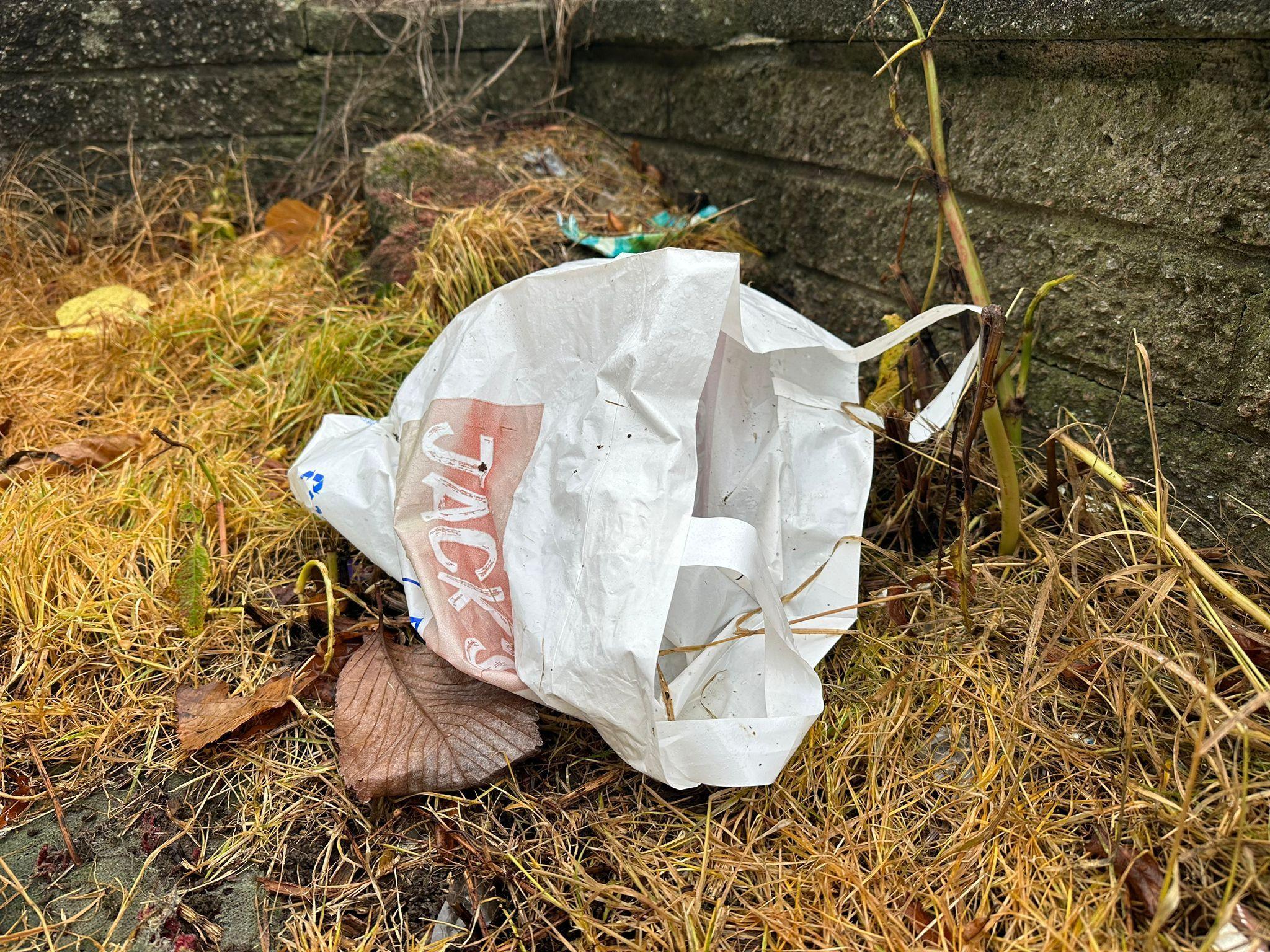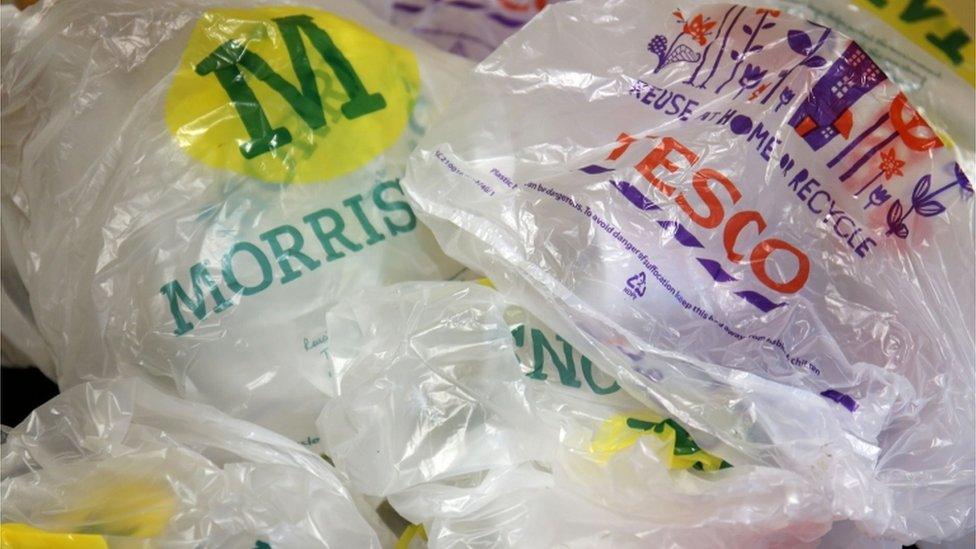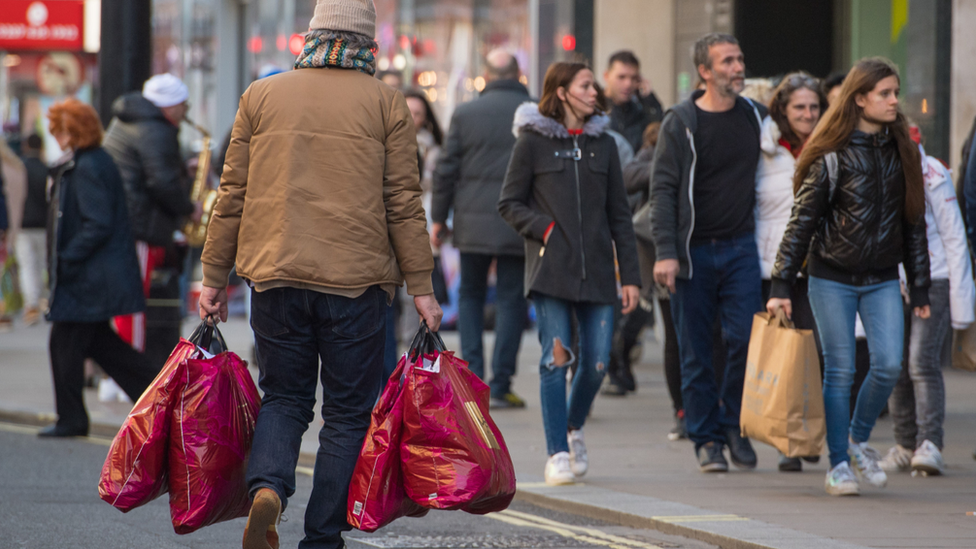10 years of the plastic bag charge in Scotland

Shops in Scotland began charging 5 pence for single-use plastic carrier bags on 20 October 2014
- Published
It’s been 10 years since a charge for single-use carrier bags was introduced in Scotland for the first time.
The aim was to reduce Scotland's litter problem by getting people to switch to reusing shopping bags rather than using new ones every trip.
Before the bag charge was introduced, the Scottish government had estimated that 800 million single-use bags were given out by supermarkets every year in Scotland alone.
One year later, figures revealed the number had fallen by about 80% - the equivalent of 650 million fewer bags.
Wales became the first part of the UK to bring in a minimum charge for single-use carrier bags in 2011, followed by Northern Ireland in 2013. England introduced the charge in 2015.
When the mandatory charge was introduced in Scotland it was set at a minimum of 5p per single-use bag – with many retailers pledging to donate the proceeds to good causes.
The charge, which doubled to 10p in 2021, has been largely successful in meeting its original aim.
But polling this year by charity Keep Scotland Beautiful suggests more than 70% of people still see plastic bag litter in their local area.
'A massive difference'
Mike Scotland, founder of Community CleanUP, a voluntary litter picking organisation, believes there has been an improvement in the past decade.
He said: “I don’t think you’ll ever stop finding plastic bags because they take so long to decompose.
“There has been a massive difference since we had that bag charge installed.
"As somebody who litter-picks all the time, over the years there has been less and less and that’s only going to be positive for the environment."
Mr Scotland added: "Unless you make something personal to the user, you’re never going to see that change.
"If you pay for it, you’re going to be less likely to throw it away. I think that’s been the main change.
“The only positive about finding a plastic bag when you’re out is that you can reuse it later.”

Mike Scotland has been picking up litter in Aberdeen almost every day for five years
'Top 10 item'
Data from the Marine Conservation Society shows a recent spike in plastic bags found on Scotland's beaches, despite a notable decrease since the peak in 2014.
The data revealed that plastic bags were consistently found on 80-90% of beach cleans between 1996 and 2014.
This fell during the pandemic in 2020 to 55% - the lowest recorded level.
Since then, the percentage has started to increase again.
The society still describes carrier bags as a “top 10 item” found on beach-cleans both for both presence and the average number found per 100 metres.
The society said 1,832 plastic bags were removed by its members in 2023, up 76 from the previous year.

Concerns remain about plastic bag litter in the environment
What's happens to the money?
It is mandatory for retailers to charge for single-use carrier bags but what they do with money is up to them.
When the charge was launched in 2014, more than 160 retailers, including Marks and Spencer, McDonald’s and The Co-operative Group, registered for Zero Waste Scotland’s carrier bag commitment., external
This meant that organisations agreed to donate profits from the charge to good causes - which may have included environmental ones.
They also agreed to report on how many bags they have sold and how they have used the money.
Between 2014 and 2017, clothing chain H&M chose Keep Scotland Beautiful to receive the funds it raised.
The charity said it used the money to support more than 200 communities, almost half of which were in the most deprived areas of Scotland, to clean up community spaces.
Chief executive Barry Fisher said: “There is no doubt that the introduction of a charge on single-use bags, had a positive impact.
"We’ve seen significant shifts in customer habits at supermarkets, and a reduction of littered bags in some locations was recorded after the first year.
“Additionally, the charge collected has, in many cases, been put to great use supporting environmental action."
- Published20 October 2014
- Published20 October 2015

- Published1 April 2021
